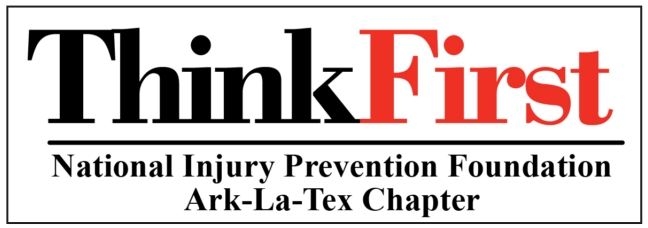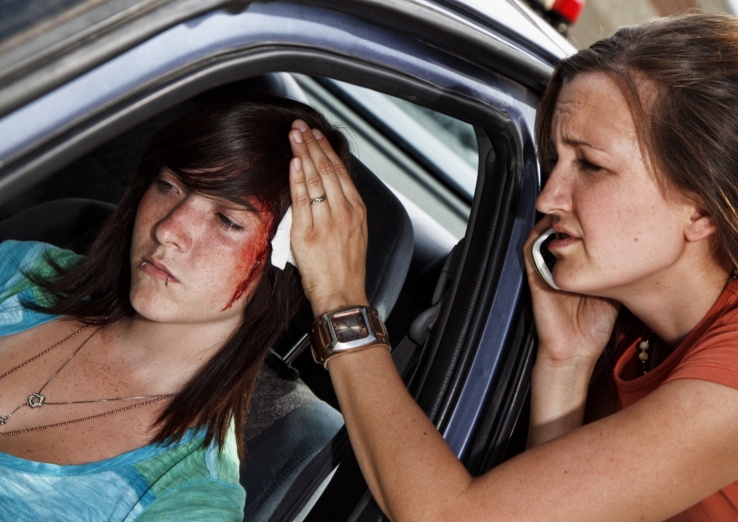
No two brain injuries are the same
Every 21 seconds, someone sustains a traumatic brain injury (TBI). Donna Cavanaugh, executive director of ThinkFirst of the Ark-La-Tex, explains how TBIs contribute to the loss of more than 50,000 lives annually and at least 5.3 million Americans are disabled from a brain injury. March marks the beginning of Brain Injury Awareness
Month, with the aim to educate the public on the incidence of brain
injuries and the needs of those who have sustained them. ThinkFirst of
the Ark-La- Tex is a chapter of the national organization that promotes
injury prevention awareness.
According
to the Brain Injury Association of America (BIAA), an estimated 3.5
million children and adults sustain an acquired brain injury (ABI) every
year, but the total incidence is unknown. Traumatic brain injuries are a
subset of ABIs and are caused by trauma to the brain by an external
force. The effects of these injuries are vast and impact more than just
the individual, as families and communities are affected as well.
When ThinkFirst presents on injury prevention, they provide comprehensive, educational information as well as testimonies of first-hand experiences.
“Our
presentations focus both on medical information about traumatic brain
injuries and the potential life consequences of sustaining one,” said
Cavanaugh. “We also offer information on spinal cord injuries.”
“We
discuss the anatomy and function of the brain and which body parts the
different areas control,” she continued. “For example, the frontal lobe
controls motor functions, higher order functions, planning, reasoning,
judgment, impulse control, memory and personality. We discuss how the
brain is irreplaceable, cannot be mended like a broken bone, and there
is no cure for a TBI. It only takes a split second to change your life
forever.”
At
the end of the program, ThinkFirst will have one of their VIPs – Voices
for Injury Prevention – tell their personal story, putting a face on
the aftermath of suffering a life-changing injury.
“The
goal is to encourage people to use their mind to protect their body,”
said Cavanaugh. “We do that by educating others about what a TBI is and
how to avoid injury. The ThinkFirst mission statement is: To prevent
brain, spinal cord and other traumatic injuries through education.”
According
to Cavanaugh, the leading causes for TBI are vehicle crashes, falls,
sports and violence. The BIAA lists that the causes for ABI can include
electric shock, infectious disease, near drowning, oxygen deprivation,
seizure disorder, stroke, substance abuse and trauma. They go on to
explain that no two brain injuries are exactly the same, and the effects
are complex and vary from person to person.
 Cavanaugh
stated that their speaking events can have a major impact on their
audiences, particularly with the guests who share their personal
stories.
Cavanaugh
stated that their speaking events can have a major impact on their
audiences, particularly with the guests who share their personal
stories.
“The
core of our program is our VIP speakers, who have a brain or spinal
cord injury,” she said. “They tell the story of their life before the
injury, how they received their injury, and how it now affects their
current life. Depending on what part of their brain was injured, it may
be very visible in the way a person walks or talks. Others deal with
memory loss, loss of taste and smell, etc.”
The
BIAA offers vast information about the effects of brain injuries and
the effects that are correlated with the side of the brain that was
injured. For example, injuries on the left side of the brain can cause
difficulties understanding and speaking language, depression, anxiety,
impaired logic and decreased control over right-sided body movements.
Rightsided injuries can cause altered creativity and music perception,
loss of “the big picture” type of thinking, and decreased control over
left-sided body movements. Injuries that are scattered throughout both
sides may cause reduced thinking speed, confusion and impaired cognitive
thinking skills – among other effects.
ThinkFirst
offers several avenues in engaging the public and encouraging the
conversation of injury prevention. Time is given for questions from the
audience to either the program coordinators or the VIP speaker, the
organization has two Facebook pages – one for the general public and one
specifically for teen drivers – and an Instragram account, and they
contribute a monthly safety column in The Shreveport Times.
“ThinkFirst
also helps host the TBI Support Group meetings,” said Cavanaugh. “These
meetings are held on the first Tuesday of every month at 6 p.m. at
LifeCare Hospital at 9320 Linwood Ave.”
For more information:
Schools
and organizations can contact ThinkFirst for a presentation, as they
are free and can fit into any time frame, said Cavanaugh. As a
nonprofit, they serve a 15-parish area and offer ways to help their
cause by donating or volunteering. For more information on ThinkFirst,
visit www.thinkfirstlouisiana.org, and for more information on brain injuries, visit www.biausa.org.